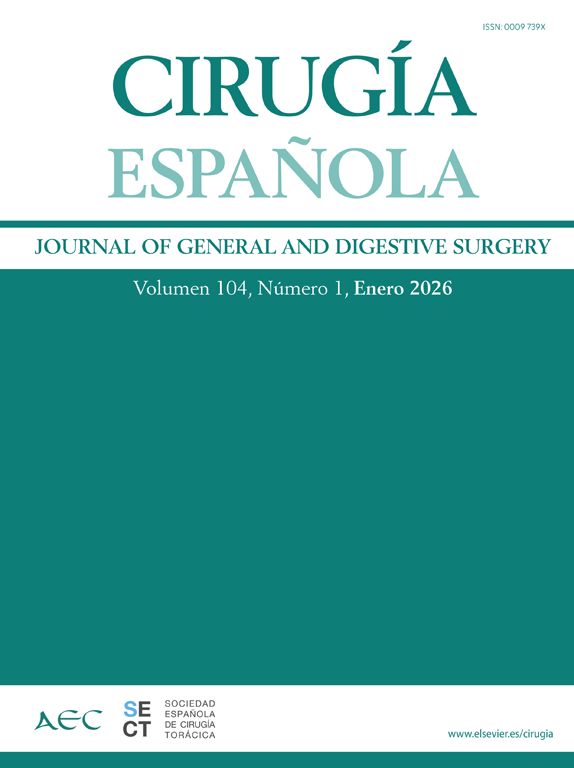El objetivo de este trabajo es presentar nuestra experiencia en la cirugía de la enfermedad de Graves-Basedow y defender la tiroidectomía total bilateral como una buena opción quirúrgica.
Pacientes y métodoRealizamos un estudio retrospectivo de 91 pacientes con enfermedad de Graves- Basedow tratados en nuestro servicio en un período de 7 años.
ResultadosLas complicaciones observadas tras la realización de la tiroidectomía total bilateral son las siguientes: 24 hipocalcemias transitorias (26,3%), dos hipoparatiroidismos permanentes (2,1%), ocho disfonías transitorias (8,7%), una lesión recurrencial unilateral definitiva (1%) y un hematoma sofocante (1%).
ConclusionesPensamos que la tiroidectomía total es una buena opción quirúrgica para el tratamiento de la enfermedad de Graves-Basedow, ya que consigue una curación completa de la enfermedad con una baja tasa de complicaciones.
We present our experience in the surgery of Graves‘ disease and defend total bilateral thyroidectomy as an effective surgical option.
Patients and methodWe performed a retrospective study of 91 patients with Graves‘ disease treated in our service over a 7-year period.
ResultsThe following complications after total bilateral thyroidectomy were observed: 24 transitory hypocalcemias (26.3%), 2 permanent hypoparathyroidisms (2.1%), 8 transitory dysphonias (8.7%), one definitive unilateral lesion (1%) and one hematoma producing suffocation (1%).
ConclusionsWe believe that total thyroidectomy is an effective surgical option for the treatment of Graves‘ disease. It can achieve complete resolution of the disease and has a low complication rate.







